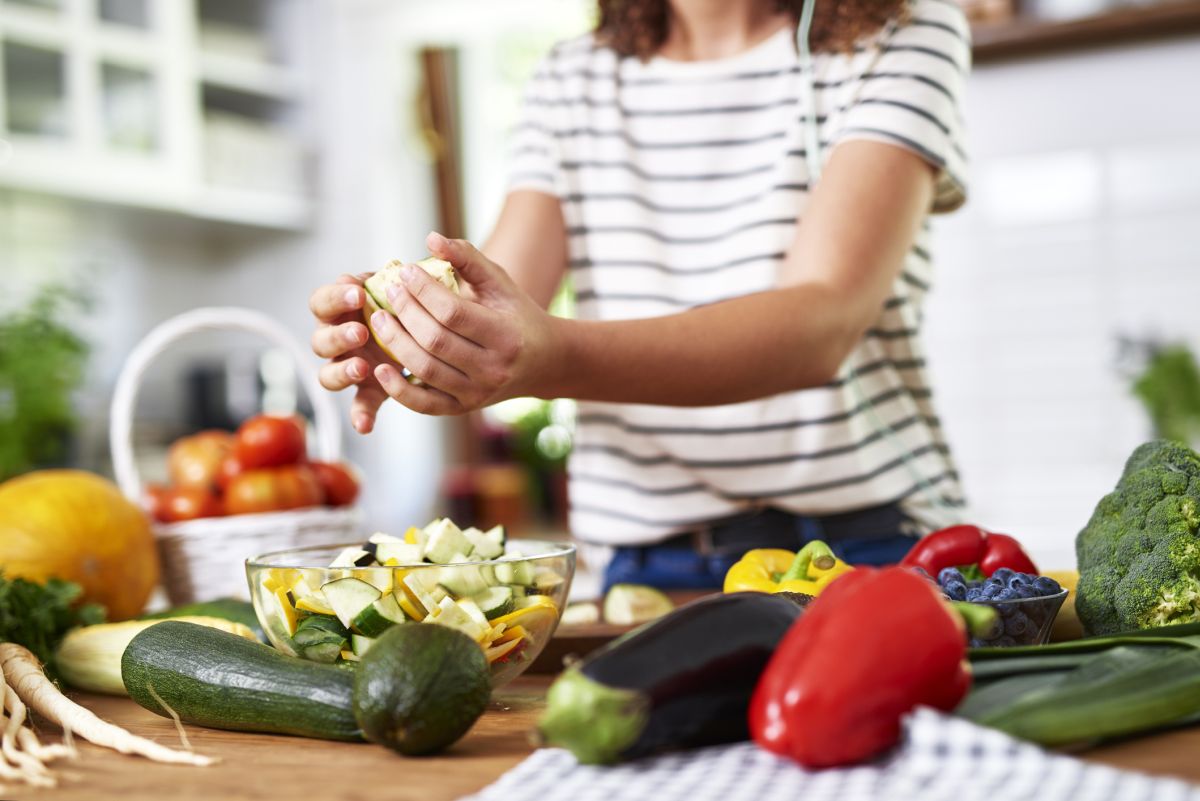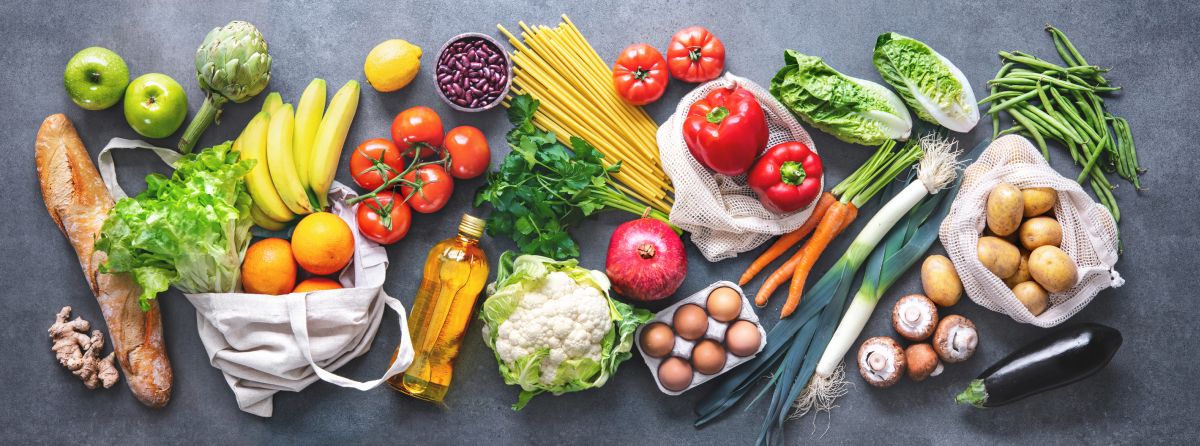There are many factors to consider when analyzing vegan vs. vegetarian diets. While vegan and vegetarian diets are similar, there are clear differences between the two.

What is a Vegetarian Diet?
People who follow a vegetarian diet do not consume the products or byproducts that come from animal slaughter. Vegetarians eat a plant-based diet, which includes fruits, vegetables, dried beans, peas, seeds, nuts, and grains. This diet can be chosen for a variety of different reasons.
Vegetarians Do Not Consume
- Meat, such as beef, pork, and game
- Poultry, such as chicken, turkey, and duck
- Insects
- Fish or shellfish
- Rennet, gelatin, and other types of animal protein
- Stocks derived from animal slaughter
- Fats derived from animal slaughter
Consumption of Byproducts Exceptions
Vegetarians will eat animal byproducts. Specifically, byproducts that are not derived from animal slaughter such as eggs, dairy products, such as milk, cheese and yogurt, honey, and more.
Different Types of Vegetarian Diets
- Lacto-vegetarians – people that do not eat fish or eggs but will consume dairy products
- Lacto-ovo-vegetarians – people who do not eat meat or fish but will consume eggs and dairy products
- Pescatarians – people who choose to not eat meat, but will consume fish or seafood.
- Ovo-vegetarian – people who eat eggs, and will not consume meat, fish, or dairy products.
What is a Vegan Diet?
A vegan diet is stricter than a vegetarian diet. People who follow vegan diets try to avoid eating the products or byproducts that come from animal slaughter. Vegans also avoid other animal products where exploitation of and cruelty to animals is involved.
Vegans Do Not Consume
- Beef, pork, lamb, and other red meat
- Chicken, duck, and other poultry
- Fish or shellfish such as crabs, clams, and mussels
- Eggs
- All Cheeses
- Butter
- Milk, cream, ice cream, and other dairy products
- Mayonnaise (because it includes egg yolks)
- Honey
What Vegan Can Eat
- Fruits and vegetables
- Legumes such as peas, beans, and lentils
- Nuts and seeds
- Breads, rice, and pasta
- Dairy alternatives such as soymilk, coconut milk, and almond milk
- Vegetable oils
Vegans Strictly Avoid
- Cosmetics and other products that are tested on animals
- Soaps, candles, and any other product that contains animal fats
- Latex products that contain casein, which comes from milk proteins
- Wool
- Silk
- Leather
- Beeswax
Veganism Way of Life
Veganism isn’t just a diet for those that follow it. Vegans make the decision to avoid all animal products, not just different kinds of food that comes from animals.
An exception to this is medications that are tested on animals. With this said, vegans might ask for medications that don’t contain
Since veganism is more than diet, many vegans might choose to avoid things like aquariums, zoos, and horse racing as these things may be viewed as another form of animal exploitation.
Nutritional Considerations: Vegan vs. Vegetarian Diets
It can be nutritionally risky to avoid certain foods altogether, without making sure you are still meeting the nutritional requirements of a balanced and healthy diet. In addition, it is important that vegans and vegetarians not mainly consume unhealthy goods.
To maintain a nourishing diet, it is necessary to have a healthy intake of vegetables, fiber, nutrients, and more.When someone follows a vegan or a vegetarian diet, it’s important to consider the nutrients those diets can lack.
Vitamin B-12 is a vitamin that is important in helping support the nervous system and cardiovascular health but is not often found in plant-based foods.
These diets can also lack Vitamin B-6 and niacin. It’s found that vegetarians may be lacking in these vitamins. On the other hand, vegans may be lacking in the minerals zinc and Omega-3.
Fortunately, there are different supplements one can take in order to meet this nutritional requirement.
Health Benefits
Advantages of Being a Vegetarian
A diet that is centered around whole foods can provide many benefits. For example, there is a reduced risk for chronic diseases, such as obesity, heart disease, hypertension, diabetes, and certain kinds of cancer.
Vegetarians tend to consume more Vitamin C and Vitamin E, dietary fiber, folic acid, potassium, magnesium, and phytochemicals.
Vegan Diet Advantages
Since vegans avoid dairy products and eggs, vegans may have lower cholesterol levels compared to vegetarians. It’s also been found that vegans tend to gain less weight when compared to vegetarians over a five-year period.
A vegan diet can also reduce the risk of chronic diseases, such as obesity, heart disease, diabetes, and more.
Health Risks and Considerations
Those who follow vegan diets may suffer from calcium, phosphorus, and Vitamin D deficiency since vegans choose to not consume dairy. It’s also known that eating a plant-based diet does not guarantee good health.
There are many products and pre-packaged foods that are considered to be vegan or vegetarian but are not considered healthy. These foods include ice cream, cookies, French fries, and more.
Healthier Diet: Vegan vs. Vegetarian
A vegan diet or a vegetarian diet both offer health benefits. For people who follow vegan or vegetarian diets, it’s important to make sure you still consume a healthy and balanced diet where you still meet nutritional requirements.
If someone is wanting to lose weight or reduce their risk for certain diseases, a vegan diet or a vegetarian diet can help. Ultimately, the food you consume is just one part of being healthy.

Leave a Reply